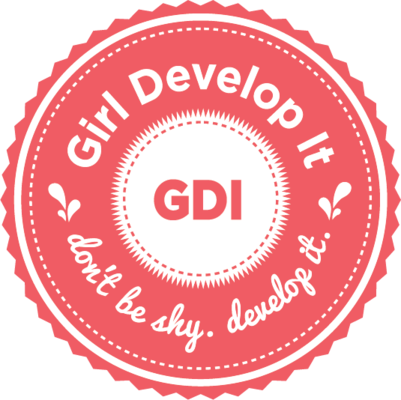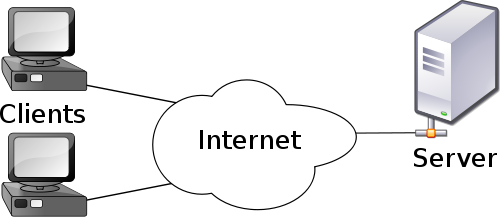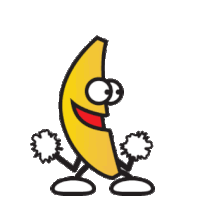
Intro to Node.js Part 1
Welcome!
Girl Develop It is here to provide affordable and accessible programs to learn software through mentorship and hands-on instruction.
Some "rules"
- We are here for you!
- Every question is important
- Help each other
- Have fun
Welcome!
Tell us about yourself.
- Who are you?
- What do you hope to get out of the class?
- What is your favorite dinosaur?
The plan
- What is Node
- What is npm
- Using node packages
- Overview of server response cycle
Quick CLI review!
Commands used often:
- mkdir
- cd
- ls [-la]
- cat
- rm [-rf]
Node.js
- Server-side JavaScript
- Event-driven
- Non-blocking
Server-side?
Clients and servers
How your computer accesses websites
But ALSO how computers talk to each other

JavaScript (in our context) is "client side"
You can run JavaScript on the server with the help of Node.js!
What does non-blocking mean?
(prepare for silly exercise)

When to use Node
- Scripting on your computer
- Setting up a web server
- Building a cross-platform app (ex. Electron)
- Managing dependencies (npm)
Take over the worldMaybe?
Let's Develop It!
- If you haven't yet installed the required materials, install: git and nvm
- Install version 8.9.4 of Node (LTS) with
nvm install 8.9.4 - Run
node -vin your terminal and see what it says - Node comes with npm, but make sure yours is up to date with
npm install npm@latest -g - Run
npm -vin your terminal and see what it says - Run
nodeto access the REPL, try out some JS! Use.exitto exit - BONUS Create a JavaScript file and run it from the command line using
node [YOUR_FILE].js
npm
npm
- “node package manager,” but also "the package manager for JavaScript" according to npmjs.com
- Package ecosystem
- Largest ecosystem of open source libraries in the world!
NPM packages
Some examples
Let's Develop It! (together)
- Make a new directory and
cdinto it - Run
npm init - What happens with
npm init --yes?
Writing a Node script
Node.js API
Node.js contains many useful core modules for us to use, such one to use the file system
const fs = require('fs');
fs.readFile('ourfile.txt', 'utf8', function(err, data) {
// do things
});
const data = fs.readFileSync('ourfile.txt', 'utf8');
Let's Develop It!0
- Create a file called script.js
- Download Frankenstein text file
- Load the file and count instances of the word "monster," and print to stdout (our terminal)
- BONUS: What other interesting stats can you calculate for this book? Try using both readFile and readFileSync
What's a package.json?
package.json is a JSON file that defines information about your app, and npm knows about it
What's a package.json?
There are some rules around names and other parts of your package.json, and npm will warn you if it doesn't like something
npm install
- Different behavior depending on arguments
- With arg: Installs a package and its dependencies to your
node_modulesfolder - Without arg: In node project folder, will install the dependencies in the
package.json
Example
npm install express
Example
npm install express
npm install express lodash ...
Tell npm to save a package to your package.json, or install multiple packages at once!
More install!
npm install is smart!
- Github remotes
npm install foo/foo - Folders
npm install ../foo - Package at version
npm install foo@1.0 - Install a package globally
npm install -g foo
What are dependencies?
A dependency is something your application needs to run (it depends on it!).
What are dependencies?
You might install a dependency that relies on something else, adding it to your dependency chain.
Check out the dependency chain for express.
What are dependencies?
Some dependencies are only used in development mode (vs production), and these are known as devDependencies in the package.json file.
Example
npm install jest --save-dev
npm install jest -D
You can install packages as dev dependencies, meaning people who run the built package don't require these modules.
Packages vs. Modules
In the Node.js module system, each file is treated as a separate module.
A package describes a group of 1+ modules
How do we use a module?
var express = require('express');
Let's Develop It!1
- Run
npm install express - What happened to your package.json file?
- Remove the
node_modulesfolder, and runnpm install. npm installs your defined dependency! - Create an
app.jsfile and require express - BONUS: Add node_modules/ to your .gitignore file
Express.js
Express features
- Routes
- Requests
- Views
Simple Express Server
var express = require('express');
var app = express();
app.get('/', function (req, res) {
res.send('Welcome to the GDI Node Workshop!');
});
app.listen(3000, function () {
console.log('Your app is listening on port 3000!');
});
Run the server from npm
"scripts": {
"test": "echo \"Error: no test specified\" && exit 1",
"start": "node server.js"
},
npm scripts
npm scripts allow you to use npm to manage a lot of your app using easy commands like npm start, npm test and more.
npm scripts
People use "scripts" in package.json to: compile or preprocess code, run tests, build for a deployment or environment, or really anything!
npm scripts
If you define an arbitrary key (not in npm docs), you can run it using npm run KEY
"scripts": {
...
"stuff": "echo \"LET'S DO STUFF\""
}
...
$ npm run stuff
Let's Develop It!2
- Update
app.jsto run a simple web server using Express - Add a command to package.json to make it easy to run, probably under "start"
HTTP Server Basics: Request/Response
Examples of HTTP requests:
- GET
- PUT
- POST
- DELETE
- Behold the holy RFC for more about the HTTP protocol
And responses?
They're what you get back from a request 😎
Routes
"Routes" define how a server should respond to a certain request at a certain end point or path.
// app.<HTTP action>
app.get('/', function (req, res) {
res.send('Hello World!');
});
What we've learned
- What is Node
- What is npm
- Used an npm module
- Built a web server
Homework
- Review exercises and bonus items
Exercise solutions at https://github.com/pselle/Intro-to-Node.js-Exercises